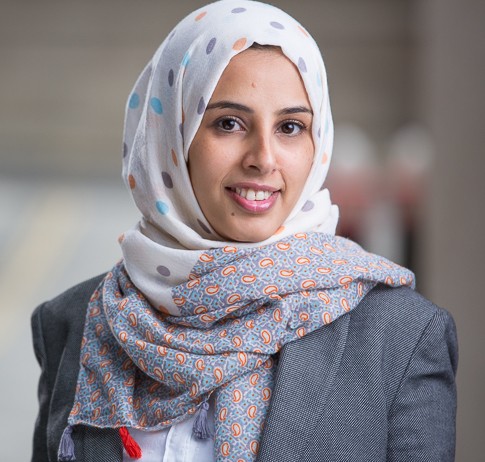#WithersWorldCup #WhoWillWin
Whether or not you are a football fan, a global event such as the FIFA World Cup 2018 brings together communities from all around the world. Teams with different playing styles and fans with different cultures. As the event kicks off, we set out to highlight the weird and wonderful legal quirks of the participating teams and the similarities and the differences between diverse nations and legal systems. Every day we'll release our brief comparisons of the teams involved in games and our conclusions as to who we think 'wins' in the legal stakes. With our global teams having their say, will our predictions reflect the outcome of the World Cup? Follow us to find out*.
You can also view our comparisons on group games in rounds two, three, the knockout round, and the final stages.
Columbia v Japan - Tuesday 19 June
Both Colombia and Japan have football teams which are well-respected in their own continents and each put their stamp on their qualification groups with consistent performances.
Stamp duty is typically a matter to be considered for most transfers of assets or shares. Japan imposes stamp duty on real estate, business transfers, mergers and demergers: its highest tax rate is JPY600,000 per taxable document in respect of business transfers (as opposed to a share transfer, where no stamp duty or registration tax is payable).
However, Colombia wins (for taxpayers!) as it does not impose transfer tax or stamp tax on any such transfer.
2-0 Colombia
Jamal Saleh, Associate, corporate, London
Poland v Senegal - Tuesday 19 June
One man who will understand both the football and legal principles at stake in today's matchup is Senegal's midfielder Badou Ndiaye, who studied law at university in Senegal at the same time as representing his country at u23 level.
Poland and Senegal levy very different rates of tax on companies. In Poland corporation tax is only 19% whereas in Senegal it is currently at 30% - down from a record 35% back in 2004.
Fortunately charities in both jurisdictions are exempt from paying corporation tax as long as they meet various conditions and comply with local charity laws. So on the basis that Senegalese charities are relieved of such a large tax burden, we will have to award them the win.
Senegal 1-0 Poland
Roger Waite, Associate, charities, London
Russia v Egypt - Tuesday 19 June
Today, Egypt plays Russia.
In Egypt a husband can file an obedience (ta'a) complaint against his wife if she leaves his home without permission. If she refuses to return without good reason she forfeits all claims to alimony should they divorce. Her alimony claim is limited in any event, usually covering a term of three menstrual cycles after divorce.
In Russia the grounds for payment of alimony are narrow, usually limited to those who are disabled, have care of a disabled child, are of pension age or have very young children.
0-0 draw
James Copson, Partner, divorce and family, London
Sweden v South Korea - Monday 18 June
This fight in the group for second place behind Germany is well balanced: Sweden boasts a stalwart defence while South Korea benefits from the creativity and work ethic of Tottenham's Son Heung-Min.
Before 1 January 2018, the corporation tax rates of South Korea and Sweden were also well balanced, each having a top corporation tax band of 22%. However, South Korea has since introduced a higher corporation tax band of 25% for companies with taxable income above KRW 300 billion.
1-0 Sweden with a stoppage time winner
Jamal Saleh, Associate, corporate, London
Belgium v Panama - Monday 18 June
This game sees the experience of Belgium (whose squad has the highest average caps per player in this World Cup) going head-to-head against Panama, who step into the unknown in their first appearance at the World Cup.
The topic of bearer shares, whereby title over such shares is determined by who holds the physical share certificate (as opposed to whose name is stated as the holder of those shares within a shareholder register), has been a political football for a number of years so far as promoting a lack of transparency regarding company ownership.
Belgium stepped away from the unknown by prohibiting the issue of bearer shares in 2005 and allowed a grace period of 10 years to ensure that all existing bearer shares were converted into registered shares or otherwise claimed by the Belgian Deposit and Consignments Fund. While Panama has vowed to end the use of bearer shares to improve transparency, Panamaian bearer shares are still in circulation but must be held by an authorised custodian who must keep a record of the owner of such shares.
3-1 Belgium
Tim Taylor, Partner, corporate, London
Jamal Saleh, Associate, corporate, London
Tunisia v England - Monday 18 June
In Tunisia, any worker who is dismissed after the expiration of the probationary period will be entitled to a severance payment, except where the dismissal is for fault of the employee. The severance payment that is available is calculated as one day per month of continuous service, usually capped at three months, unless the collective bargaining agreement says otherwise.
In England, however, the only time an employee is statutorily entitled to a severance payment is if they are made redundant and have two or more years' continuous service.
On this occasion, we say it is a 1-0 win for Tunisia (but, I am sure there will be some England fans that hope this is not reflective of tonight's match!)
Caroline Matthews, Associate, employment, London
Costa Rica v Serbia - Sunday 17 June
Enforcement of property rights in Serbia can be slow because of property title issues such as fraud and unlicensed and illegal construction and more. In July 2015, the government adopted a law that states that property usage rights can become ownership rights if there is a payment for the property of the market-based fee. Serbia has the basis for an organized real estate title system but 1.5 million buildings are not registered because many were built without a legal license and only 800,000 building owners have tried to legalize their buildings. For this reason, in November 2015, the government adopted a new law that simplifies this registration process.
In Costa Rica, mortgage and title recordings are mandatory but there are still issues of fraudulent title filings. Additionally, in Costa Rica squatters have rights to property they have occupied for a long enough period of time under certain circumstances.
A 1-0 win for Costa Rica here!
Michael Rueda, Associate, corporate, Greenwich
Germany v Mexico - Sunday 17 June
Generally, foreigners are prohibited from owning real estate in Mexico. However, foreign ownership is possible through a Mexican trust or a fideicomiso, one of the most flexible contracts in Mexico and used for many different purposes. The Mexican Department of Foreign Affairs issues a permit to a Mexican bank, allowing the bank to act as purchaser of the property. The bank acts as the trustee for the fideicomiso and the foreign purchaser is the “beneficiary” with many of the rights and powers of an owner.
While the German legal system does not recognize the legal form of trust, there are no restrictions to foreigners buying property in Germany. However, there are some downsides. EU nationals who do not live and work in Germany are only able to borrow up to 60% of the property value while non-EU nationals are barred from direct access to bank financing in Germany, although bank financing is available through a German limited liability company. While not a World Cup champion yet, Mexico's flexibility attracts a great deal of foreign aficionados to its football fields.
Could we see a 1-0 win for Mexico?
Josefina Colomar, Associate, private client and tax, New York
Magaly Aranda, Associate, private client and tax, New York
Brazil v Switzerland - Sunday 17 June
Football isn't just a game and neither is the double taxation agreement ("DTA"). On May 3, 2018, the Swiss Confederation and the Federative Republic of Brazil signed a DTA, which aligns with the OECD's recommendations. The DTA governs the rules for the taxation of interest, capital, dividends, royalties, etc., while also avoiding double taxation and combatting tax evasion through anti-abuse rules. For example, capital gains on the sale of shares in the country where the company is located are generally exempted under the agreement. Although the DTA has not yet entered into force, it's a promising first half for both teams!
Draw: 2-2
Josefina Colomar, Associate, private client and tax, New York
Miguelina Mercedes, Associate, private client and tax, New Haven
France v Australia - Saturday 16 June
The notion of ‘hardship’ is now an integral part of French contract law and a significant departure from the previous legal position. For the first time, French judges now have the power by law to terminate or amend contracts in the event of changed circumstances. This change follows the recent wholesale review in October 2016 of the French civil code, which had remained largely unchanged for some 200 years.
Under Article 1195 of the new civil code, a judge is now able to amend or terminate a contract where the contract, unforeseeably, becomes excessively onerous to perform for one of the parties, and where such risk had not been assumed by that party. However, the parties must try and negotiate an outcome before the judge can intervene in this way. If negotiations falter, the judge will ultimately have broad discretion to amend the contract or terminate it, at the date and on such conditions as he shall determine.
In Australia, the doctrine of frustration in essence provides for a similar outcome. Under common law, broadly speaking, the courts require a contract to be:
- incapable of being performed due to an unforeseen event
- without fault of either party
- resulting in the obligations of the contract becoming radically different
In essence, these criterion appear to generally correspond with the French provisions. However, in practice, frustration is applied narrowly. For instance, a contract will not be deemed to be frustrated simply because the contract is a bad bargain or that it would be a fairer distribution of commercial risk to qualify the terms of the contract.
A close call but, ultimately, a 2-1 win to France.
Anthony Indaimo, Partner, corporate, London, Milan, Singapore
Justin Gross, Partner, real estate, Sydney, Singapore
Argentina v Iceland - Saturday 16 June
Argentina may have better luck in today's game than it's having with the OECD. Despite Argentina's apparent and continued commitment to tax reform, it's experiencing a delay in its bid for membership in the OECD.
Meanwhile, Iceland, as an OECD member, is ahead of the game. Iceland's membership generates international recognition, which appeals to foreign investors – this membership benefit could be quite valuable for Argentina given it's peso downward slide. OECD membership signals a country's leadership in varying areas such as trade and investment.
Looks like it's a goooooooooooal for Iceland! 1-0
Josefina Colomar, Associate, private client and tax, New York
Peru v Denmark - Saturday 16 June
In early 2017, Peru made many reforms to its tax laws by increasing tax rates for corporate income, decreasing the dividends withholding tax rate, and extending the temporary exemption from capital gains tax for gains from the sale of shares on the Lima Stock Exchange. There were also deductions for health and housing expense.
Denmark has one of the highest tax rates in the world, with the average Dane paying 45 percent in income taxes. However, the Danes receive free education in university and an allowance of $900 per student for each month from the government. There is also up to 32 weeks of paid parental leave given and free health care.
An overall 2-1 win for Denmark.
Michael Rueda, Associate, corporate, Greenwich
Croatia v Nigeria - Saturday 16 June
Croatia is the most recent member of the European Union whose economy has been growing at 3% per annum since 2014. This small country has a vibrant tourist and services sector with famous destinations such as Dubrovnik, Split, Plitvice lakes, Hvar and Korcula – the reputed birthplace of Marco Polo. Croatia also has an export oriented shipbuilding industry and prominent agricultural sector. The country also has invested heavily in infrastructure with extensive motorway and rail networks and numerous cargo and passenger ports to enhance its tourist destination status.
Nigeria is the largest economy in Africa and the 30th largest economy in the world. Historically Nigeria has been hindered by years of economic mismanagement. However economic improvements since 2000 have taken place. Nigeria is an OPEC member. Oil revenues comprise two thirds of all state revenues and the oil sector represents about 9% of the country's GDP. Nevertheless diversification in the economy away from oil is being pursued in government policies and is reflected in Nigeria's status as having the largest manufacturing sector in Africa. Manufacturing along with agriculture, solid minerals, services, IT and telecoms, financial services, tourism, creative industries, construction and real estate are all targets for broader non-oil sector growth by the Nigerian government. This giant is indeed awakening: Citibank has predicted that Nigeria will achieve the highest average GDP growth globally between 2010 and 2050. However it is starting from a low base. Nearly 80% of Nigeria's 190 million people still live on less than $2 a day and poverty is unacceptably high.
I call this a draw 2-2.
Denis Petkovic, Partner, banking and finance, Hong Kong
Egypt v Uruguay - Friday 15 June
Uruguay allows disputes to be resolved either in court or through arbitration in Uruguay or abroad. International arbitration tribunals can be guided by Uruguayan law or foreign law and the legislation recognises the findings and sentences that are submitted for enforcement. Uruguay is a part of many international agreements on international arbitration.
In Egypt, arbitration is the prominent method to solve business, commercial, and investment disputes. In 1994 Arbitration Law No.27 was enacted by the Egyptian government and governs domestic and international arbitrations. Arbitration is something that the courts highly encourage in Egypt and judges have accepted arbitral awards and have never reviewed them on the merits.
A very close 1-0 to Uruguay.
Michael Rueda, Associate, corporate, Greenwich
Morocco v Iran - Friday 15 June
Morocco is one of the first countries that ratified the International Convention on the Settlement of Investment Disputes between States and Nationals of Other States (the "ICSID Convention"), which entered into force on 10 June 1967, with the first ever ICSID arbitration claim being introduced against Morocco in 1972. Morocco has entered into 80 bilateral investment treaties (BITs) to date, of which 51 are in force.
Iran is not a party to the ICSID Convention. However it has enacted a Foreign Investment Promotion and Protection Act in 2002 introducing an alternative method for dispute settlement for parties other than exclusive referral to national courts. Iran has entered into 69 BITs to date, of which 54 are in force.
Suggesting a 1-1 draw here.
Yousra Salem, Paralegal, London
Portugal v Spain - Friday 15 June
This is a crunch game between the 2016 Euros winners and the 2012 Euros/ 2010 World Cup winners and the sky's the limit! Talking of limits… the ordinary limitation period for claims in Portugal is a whopping 20 years! In Spain, the general limitation period for claims is 5 years (down from 15 years previously).
2-0 to Portugal (both goals 'claimed' by Ronaldo).
Andrew Fremlin-Key, Associate, London
Russia v Saudi Arabia - Thursday 14 June
The Saudi Arabian team have recently refocused their attacking options, but are still fairly vulnerable near their own goal. However, this will be anything but a walk in the park for the Russian team.
Super-rich, ultra-high net worth Russian individuals have recently been investing in football and a number of clubs across Europe are either owned or have shares held by a number of well-known Russians.
Football is now the most popular sport in Saudi Arabia and has, in the past, been owned and heavily subsidised by the government. However, the recent movement toward privatisation of the Saudi Professional League and earmarking of European football clubs is paving the way for considerable Middle Eastern investment into football.
Whilst private investment from Saudi billionaires is on the rise, based on their long standing history in football clubs, this seems a 1-0 win to Russia.
Tatiana Menshenina, Partner, litigation and arbitration, London
*The information and comments in this blog are for the general information of the reader and are not intended as legal advice or opinions to be relied upon in relation to any particular circumstances. For particular application of the law to specific situations, the reader should seek professional advice.






